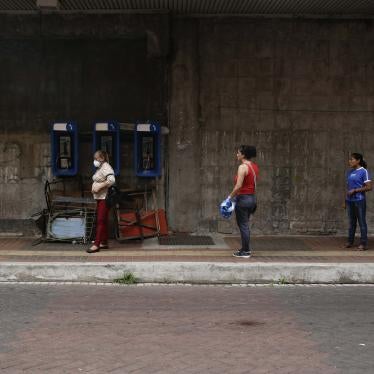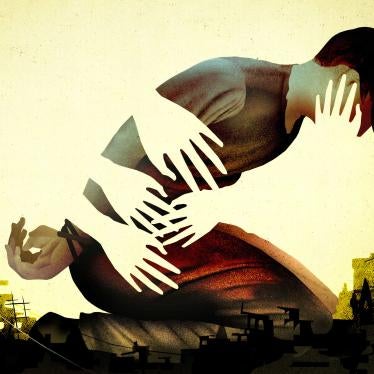This is an important day for same-sex couples. The Inter-American Commission on Human Rights will, for the first time, hold a public hearing on the question of marriage equality in Panama. This means that advocates will have a chance to make their case before a regional body on how depriving same-sex couples of equal access to marriage infringes on their human rights.
Some same-sex couples in Panama have been waiting years for the government to recognize their relationships. In October 2016, Enrique Jelenszky filed the first petition for the country’s Supreme Court to declare unconstitutional part of article 26 of Panama’s Family Code defining marriage as “between a man and a woman.” Jelenszky, a Panamanian citizen, had married his husband under British law and tried to register his marriage in Panama. The National Civil Registry Department denied the request.
Since 2016, three more same-sex couples have mounted legal challenges to article 26 of the Family Code, as well as against article 34 of the Family Code and article 35 of Law No. 61 (2015), which further define marriage as between different-sex couples. The cases all remain pending before different courts: the plenary of the Supreme Court, the Third Chamber of the Supreme Court (dealing with administrative cases), and the Electoral Tribunal. While the cases are legally diverse, all couples argue for equality before the law under international and domestic law.
Under international human rights law, arbitrarily treating same-sex couples differently from different-sex couples is illegal, including with respect to marriage. In a landmark 2017 opinion, the Inter-American Court of Human Rights stated that all rights applicable to family relationships of heterosexual couples should extend to same-sex couples. This opinion is applicable in 23 state parties, including Panama.
Several of Panama’s neighbors have heeded the Inter-American decision. In 2018 and 2019, respectively, the Costa Rican and Ecuadorian constitutional courts ruled in favor of marriage equality, buttressing their arguments with the Inter-American opinion. These advances follow a wave of progress in Latin America, with Argentina, Brazil, Colombia, and Uruguay recognizing same-sex marriages before the Inter-American opinion. In Mexico, 18 states and Mexico City have marriage equality, while same-sex couples in other states can marry but need a court injunction.
But recent developments in Panama have been mixed. In November 2019, the National Assembly preliminarily approved a constitutional amendment defining marriage as between a man and a woman. Panamanians took to the streets to protest this and other controversial amendments, ultimately prompting President Laurentino Cortizo to recommend scrapping the amendment. Instead of writing discrimination into the constitution, Panama should uphold its obligations under international law and promote equal rights for all its citizens.
This is not a pipe dream. In July, the Panamanian government took an important step forward in support of the rights of lesbian, gay, bisexual, and transgender (LGBT) people. Responding to acts of discrimination during the gender-based quarantine, five government ministries and the Ombudsperson’s Office issued a statement that said, “the National Government rejects any type of hostility, violence, xenophobia, homophobia, transphobia or discrimination[.]” Citing the country’s international obligations, high-level officials showed a strong political commitment to the principles of equality and non-discrimination.
The authorities in Panama should approach today’s Inter-American hearing with the same spirit. As same-sex couples explain their grievances to the international community, the authorities should remember that disparate treatment, including by omission, not only causes devastating harm, but also flies in the face of international law. The hearing should remind authorities of their obligations and put Panama on the path toward joining the ranks of countries in the region that have upheld equal marriage.









